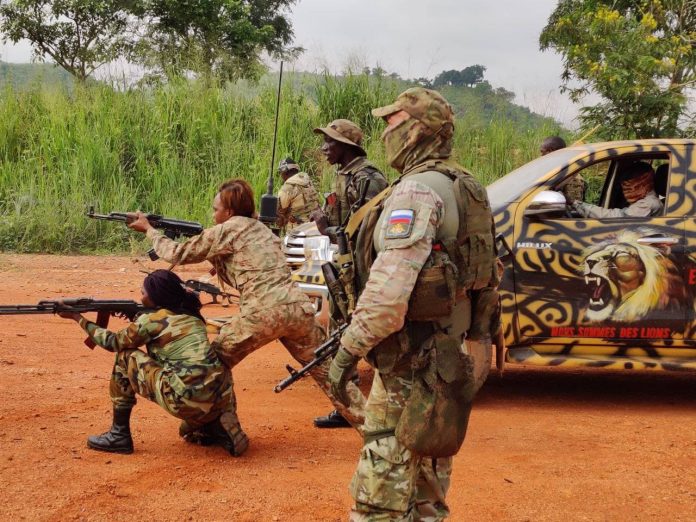What to Know:
Russia has generated over $2.5 billion through African gold since the start of the Invasion of Ukraine in February 2022, which has been largely supported by the Private Military Company Wagner Group, according to the newly released Blood Gold Report. The control of African gold mines, payment in gold, and gold smuggling has provided up to $114 million in revenue per month, which can be used to circumvent western sanctions against Russia and further support ongoing war efforts in Ukraine.
Wagner’s activities in the Central African Republic (CAR), Sudan, and Mali are explained by the report:
- In CAR, Wagner reportedly controls the Ndassima gold mine, the largest in the country, which produces an estimated $290 million worth of gold annually.
- In Sudan, Wagner dominates the unprocessed gold market through control of an unnamed major refinery, with estimates suggesting that nearly $2 billion in gold is smuggled out of the country annually.
- In Mali, Wagner is paid a monthly retainer of around $10.8 million to provide security and support the military junta, with international mining companies contributing significantly through taxes.
The report emphasizes that Wagner’s operations in CAR and Sudan have faced sanctions, leading the group to employ complex smuggling routes and corporate fraud to move gold and convert it into cash. In Mali, Wagner’s indirect involvement with mining operations allows multinational mining companies to convert gold into cash for the junta without triggering international sanctions against Russia.
The report also accuses Wagner Group of suppressing political opposition, spreading disinformation, silencing media, and mass murder to increase dependence on its PMCs, ensuring a long-term revenue stream for the Kremlin.
Central African Republic (CAR):
The report argues that Wagner Group has long used CAR as a testing ground for its African operations, creating a strategic political playbook to later be employed in Sudan and Mali.
CAR, long marred by coups and factional violence, saw President Touadera leveraging alliances to sustain political power. Moscow, seeking regional influence and natural resource access, became Touadera’s main external supporter by providing weapons, embargo exemptions, and formal military ties that ultimately pushed French influences out of the country.
The Ndassima mine, which is controlled by the Wagner-affiliated Midas Resources, produces $290 million in gold a year, showcasing the scale of operations. his gold is then exported through international laundering schemes to avoid sanctions.
Sudan:
In Sudan, Wagner leverages connections with various Sudanese factions as the country faces an ongoing civil conflict, where it has been accused of playing both sides by running weapon smuggling routes for cash or gold access.
Despite sanctions against Sudan, Wagner transfers its assets to newly created local companies to carry out mining operations, according to the report. The Sudanese gold sector, marked by lawlessness and factionalism, allows Wagner to navigate without adhering to regulations and operate through “goodwill fee” arrangements with various factions.
The gold is then smuggled out of the country.
Mali:
In 2021, the Kremlin began to forge a relationship with the Malian military junta, which seized power in 2020 under the command of Colonel Assimi Goita. Later that year, Wagner PMCs began to appear in the country, providing security to Malian officials and carrying out training of local security forces.
Unlike its operations in CAR and Sudan, where it primarily profited from controlling mining operations, the Wagner Group adopted a different strategy by seeking direct mining concessions from companies. Wagner secured a cash-for-security-services deal with the Malian junta, earning substantial income that US intelligence estimated to be over $200 million for security services, amounting to $10 million per month.
The presence of international gold mining companies in Mali offers Wagner a notable advantage. Unlike its operations in CAR or Sudan, their Malian model doesn’t require elaborate laundering schemes to convert gold into cash.
International mining companies, with their upstanding reputations, certify the gold extracted from Mali as ethical, so when this gold reaches foreign refineries, it enters the global market as legal, making it effectively untraceable after merging with gold from other countries.


